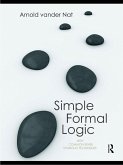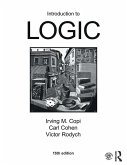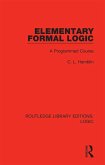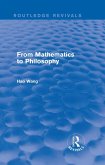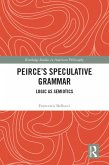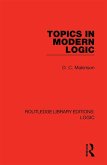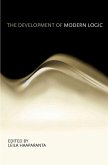Simple Formal Logic features:
- a companion website with abundant exercise worksheets, study supplements (including flashcards for symbolizations and for deduction rules), and instructor's manual
- two levels of exercises for beginning and more advanced students
- a glossary of terms, abbreviations and symbols
This book arose out of a popular course that the author has taught to all types of undergraduate students at Loyola University Chicago. He teaches formal logic without the artificial methods - methods that often seek to solve farfetched logical problems without any connection to everyday and philosophical argumentation. The result is a book that teaches easy and more intuitive ways of grappling with formal logic - and is intended as a rigorous yet easy-to-follow first course in logical thinking for philosophy majors and non-philosophy majors alike.
Dieser Download kann aus rechtlichen Gründen nur mit Rechnungsadresse in A, B, BG, CY, CZ, D, DK, EW, E, FIN, F, GR, HR, H, IRL, I, LT, L, LR, M, NL, PL, P, R, S, SLO, SK ausgeliefert werden.
'I was floored by this fabulous logic text and by the talents of its author! I tremendously enjoyed reading it, and can't wait until I can adopt it as my class text.' - Michael Latzer, Gannon University, USA
'I was floored by this fabulous logic text and by the talents of its author! I tremendously enjoyed reading it, and can't wait until I can adopt it as my class text.' - Michael Latzer, Gannon University, USA



